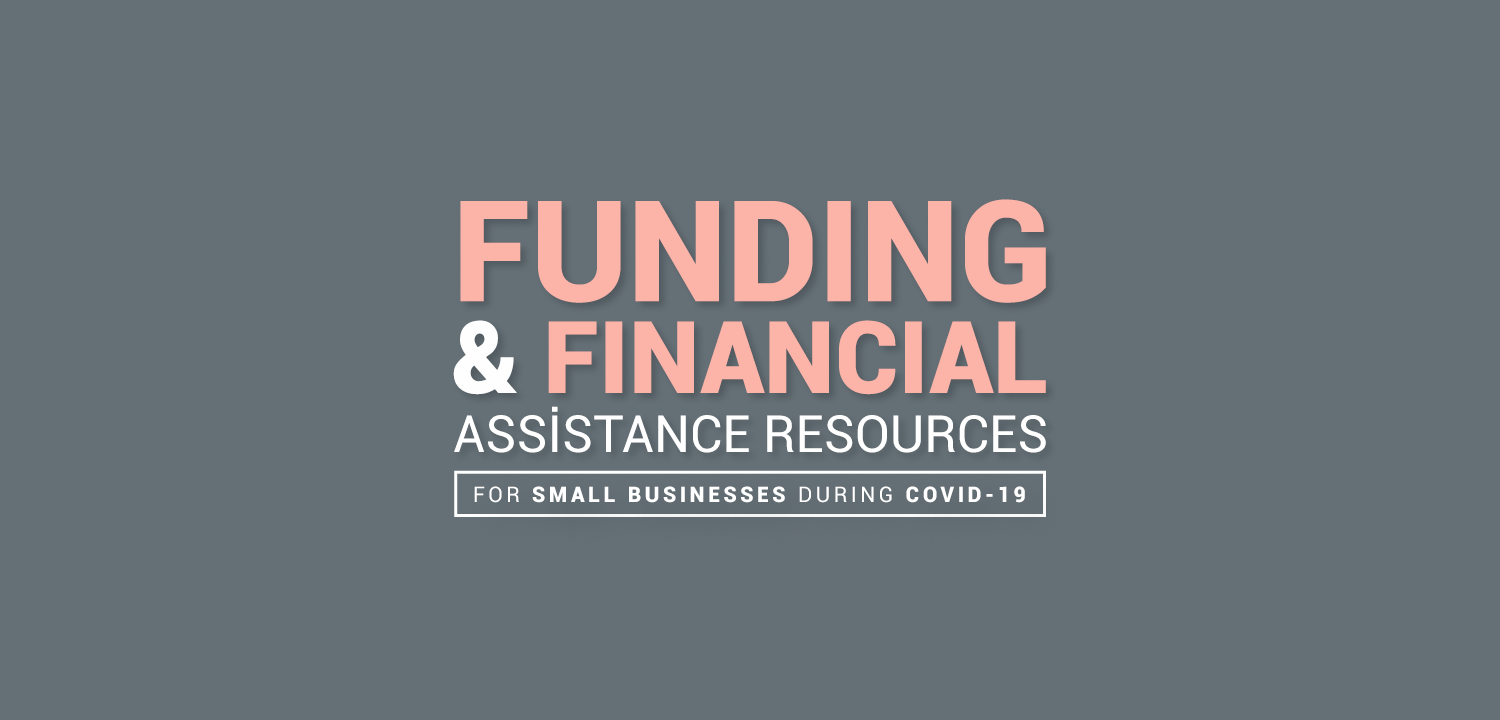As we navigate these uncharted times, with our nation and local communities dealing with the novel coronavirus (COVID-19) pandemic, the impact is surely felt. We are all coping with this as individuals, parents, daughters, sons and small business owners. DCC is collecting funding and financial resources for small business assistance during COVID-19. We can help you navigate the process.
Federal Small Business Assistance during COVID-19
CARES Act
- The Coronavirus Aid, Relief, and Economic Security Act (CARES Act) $2 trillion economic relief package injects cash into the economy. It includes direct payments to qualifying taxpayers, jobless benefits and a $500 billion fund to assist distressed businesses. Small businesses employing fewer than 500 workers can access zero-interest loans.
- The Paycheck Protection Program- one of the largest sections and of the CARES Act- is the most important provision in the new stimulus bill for small businesses. Essentially, the CARES Act makes changes to taxes and tax policies to help ease the burden of impact by COVID-19.
- This new program sets aside $350 billion in government-backed loans. It models the existing SBA 7(a) loan program
- Another important aspect of the CARES Act is expansion of eligibility for the Small Business Administration (SBA) Economic Injury Disaster Loan. In early March, the SBA’s disaster loan program extended to all small businesses affected by COVID-19. The CARES Act opens this program up further and makes it easier to apply.
- The CARES Act makes select changes to taxes and tax policies easing the burden and adding resources for small businesses impacted by COVID-19.
- Businesses are eligible for an employee retention tax credit
- Both businesses and self-employed individuals can delay their payroll tax payments
- Businesses that have net operating losses (NOLs) have some limitations relaxed
- And, businesses due to receive corporate alternative minimum tax (AMT) credits at the end of 2021 can claim that now
- The Paycheck Protection Program- one of the largest sections and of the CARES Act- is the most important provision in the new stimulus bill for small businesses. Essentially, the CARES Act makes changes to taxes and tax policies to help ease the burden of impact by COVID-19.
Families First Coronavirus Response Act
- The CARES Act also makes small changes to the Families First Coronavirus Response Act (FFCRA), which responds to the growing health and economic crises with provisions for paid sick leave, free testing and expanded unemployment benefits, while offering tax incentive resources for small businesses. Notably, businesses can keep money that they would have deposited for payroll taxes in anticipation of refunds from the Treasury Department for paid sick leave and paid FMLA leave outlined by the FFCRA, including amounts that would have been refunded later.
- The new law requires small employers — those with fewer than 500 employees — to provide limited paid-leave benefits to employees who are affected by the coronavirus emergency.
- Small employers are given new tax credits and federal payroll-tax relief to pay for the new mandatory benefits. Specifically, a small employer can collect a tax credit equal to 100% of qualified emergency sick-leave and family-leave payments made by the employer pursuant to the Act.
- Sick-leave and family-leave payments mandated by the Act are exempt from the 6.2% Social Security tax component of the employer’s federal payroll tax that normally applies to wages.
- Employers must pay the 1.45% Medicare tax component of the federal payroll tax, but they can claim a credit for that outlay.
- Small businesses with fewer than 50 employees may qualify for exemption from the requirement to provide leave due to school closings or child care unavailability if the leave requirements would jeopardize the viability of the business as a going concern.
- For the self-employed individual who is affected by the coronavirus emergency, the Act allows to claim a refundable credit against federal income-tax bill, including the self-employment tax hit. If the credit exceeds bill, the government will issue a payment for the excess.
Florida
- Florida activates Emergency Bridge Loan Program for Small Businesses Impacted by COVID-19. Small business owners with two to 100 employees located in Florida can apply for short-term loans up to $50,000. The loans are interest-free for up to one year and designed to bridge the gap in either federal U.S. SBA loans or commercially available loans.
- Florida’s Department of Economic Opportunity is offering the Short Time Compensation Program for Employers. The voluntary employer program intends to help employers maintain their staff by reducing the weekly working hours during temporary slowdowns. Instead of temporarily laying off employees.
- The Rebuild Florida Business Loan Fund, launched in May 2019, helps Florida businesses with recovery and resiliency. $40 million is available for eligible businesses. Up to $500,000 in financing for inventory purchases, working capital and more.
New York
- New York announces Assistance and Guidance for Businesses Impacted Due to Novel Coronavirus. The City will provide relief for small businesses seeing a reduction in revenue because of COVID-19. Businesses with fewer than 100 employees seeing sales decrease 25% or more, are eligible for zero interest loans of up to $75,000 to help mitigate losses in profit.
- The Economic Development corporation Renaissance offers the Emergency Small Business Relief Loan Fund to small businesses with up to 50 employees. Eligible companies must be based in particular neighborhoods of New York. Loans can be as much as $50,000 and carry a fixed interest rate of 3%.
California
- In California SBA offers disaster assistance to small businesses impacted by COVID-19. The low-interest federal disaster loans are for working capital to California small businesses suffering substantial economic injury due to COVID-19.
- The Small Business Finance Center (SBFC) which helps companies create and retain jobs has the Disaster Relief Loan Guarantee Program. It provides loan guarantees of up to $1 million for small business borrowers in declared disaster areas. Also, the Jump Start Loan Program offers loans from $500 to $10,000. This is for low-wealth entrepreneurs in declared disaster and emergency areas.
General Business Resources
The Facebook Small Business Grants Program offers $100M in cash grants and ad credits to help during this challenging time. And Google has the premium version of its workplace video chat tool free until July 1st. This resource allows employees to connect while practicing social distancing for the livelihood of our communities.



